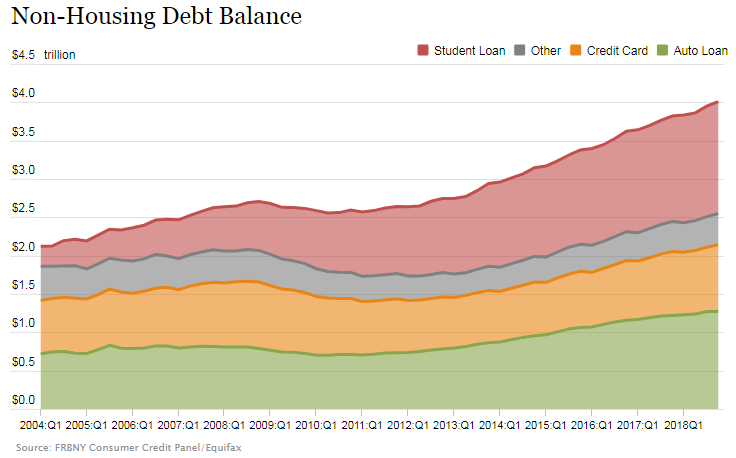K. Lloyd Billingsley • Tuesday, February 26, 2019 •
“Tax Bill – Open Immediately” reads the envelope on a February 15, 2019, letter from the Sacramento County Administrative Services Department of Finance. As Sacramento County taxpayers might recall, they got a similar letter in October, containing their property tax bill for the year. So taxpayers had the right to wonder what’s going on with yet another tax bill and the demand to “open immediately.”
“You are receiving this letter and the accompanying tax correction bill because a required Sacramento Area Flood Control Agency (SAFCA) direct levy assessment was omitted from your 2018-2019 annual tax property bill in error,” reads the letter from Ben Lamera, the county Director of Finance. Director Lamera does not explain how this “error” happened or who, exactly was responsible for it. But Director of Finance Lamera is certain that the charge for SAFCA Operations and Assessment, “that should have appeared on your annual property tax bill,” needs to be paid by April 10, 2019, “to avoid penalties.” So once again it’s “let’s have the wallet, Jack, or else.”
Samuel R. Staley • Monday, February 25, 2019 •
 The 91st Academy Awards turned out to be a good night for liberty and individualism, although many would have been surprised based on the lead up to Hollywood’s most glamorous night. Strong buzz for The Favourite, Bohemian Rhapsody, Vice, and A Star Is Born suggested that movies featuring liberty and freedom as central themes would struggle. With the strong showings for Green Book and Roma, however, individual freedom grabbed a significantly larger share of the spotlight.
The 91st Academy Awards turned out to be a good night for liberty and individualism, although many would have been surprised based on the lead up to Hollywood’s most glamorous night. Strong buzz for The Favourite, Bohemian Rhapsody, Vice, and A Star Is Born suggested that movies featuring liberty and freedom as central themes would struggle. With the strong showings for Green Book and Roma, however, individual freedom grabbed a significantly larger share of the spotlight.
Green Book took home Oscars for Best Picture, Best Supporting Actor (Mahershala Ali), and Best Original Screenplay. (See my full review here.) The movie follows the true story of Don “Doc” Shirley, an African-American virtuoso classical pianist, as he travels from New York City into the Jim Crow South of the early 1960s. Knowing his personal safety will be at risk, Shirley hires Frank “Tony Lip” Vallelonga (Viggo Mortensen), a prejudiced bouncer from Brooklyn, as his driver and bodyguard. Tony takes the job because he is temporarily out of work, and he needs the money to support his family. The stereotypical roles are immediately flipped, and the screenplay builds on these tensions.
Craig Eyermann • Monday, February 25, 2019 •
In the 1930s, the U.S. federal government established dairy subsidies to bail out America’s dairy farmers from the Great Depression. Managed by the U.S. Department of Agriculture, those same subsidies are still in effect today, where they have underwritten a massive surplus of milk in the U.S. dairy industry that far exceeds the appetites of over 327 million Americans to consume it.
But rather than reduce the subsidies to reduce the surplus to more reasonable levels, the USDA is instead paying the U.S. dairy industry to make billions of pounds of cheese from the millions and millions of gallons of surplus milk. According to Emily Moon’s reporting at Pacific Standard, the USDA now has a stockpile of 1.4 billion pounds of processed American cheese.
Randall G. Holcombe • Monday, February 25, 2019 •
Surely, Alexandria Ocasio-Cortez is the most visible and most vocal new member of the House of Representatives, and it is easy for defenders of freedom and free markets to find fault with almost every policy she promotes. When she objected to the massive subsidies Amazon was to receive to locate a new headquarters in New York, she received criticism from the left and from the right, and for the same reason. She helped tank the deal.
While I disagree with almost everything AOC says, I’m with her on this one.
When government subsidizes one business, other businesses and households have to pick up the slack. Lower taxes for Amazon means higher taxes for someone else. Why should Amazon be treated any differently than the businesses that are already located in New York?
Raymond J. March • Wednesday, February 20, 2019 •
After turning 26, Alec Smith could no longer be covered by his mother’s health insurance policy. He was also ineligible for coverage from his employer. This was a problem—for Smith was a type 1 diabetic.
Dependent on insulin to prolong his life, Smith faced out-of-pocket expenses of nearly $1,300 a month. To manage this cost, he began rationing his insulin doses, a deadly tradeoff between keeping up financially and maintaining his long-term health. Tragically, this caused him to go into a diabetic coma and die.
Many other diabetics are in similar financial situations. CBS News recently reported finding “horror stories every day” of diabetics reducing their insulin doses to cope with the astronomical prices. With over 100 million Americans living with diabetes or prediabetes and increasingly more needing insulin to manage their conditions, high prices can mean the difference between life and death for a considerable portion of the population.
Robert Higgs • Tuesday, February 19, 2019 •
A few days ago, my lunch was as follows. Besides some Chilean grapes I had acquired via Lucio and a host of other, unknown middlemen (gracias al Mano Invisible), I had some homemade Oaxaca-style cheese and some homemade tortillas I purchased from local people who peddle their products along the beach road. (Oh, yes, I seasoned my quesadillas with some very tasty locally made salsa picante de habanero y pina.) Well, so what?
You see, it got me to thinking. I am running a terrible trade deficit with the local Mexicans. I keep giving them pesos, and all they give me in return are delicious foods and very helpful labor services from time to time. As President Trump would tell you, this is an awful situation for anyone to be in.
Craig Eyermann • Tuesday, February 19, 2019 •
U.S. government-sponsored student loan debt has become an escalating problem for the finances of many American households. The latest household debt report from the New York branch of the Federal Reserve indicates that Americans collectively owed $1.46 trillion in student loans at the end of 2018, more than any other category of non-housing related debt.

Worse, the percentage of student loan debt that is in “serious delinquency”, where no debt payments have been made for at least 90 days or longer, has remained stuck within a range between 10.7% and 11.8% of the total borrowed since 2012, the highest of all forms of household debt.
Robert Higgs • Tuesday, February 19, 2019 •
Suppose I decided to go back into the business of being a professor of economics specializing in economic history in the USA. Suppose further that 100 jobs are available, and 101 applicants for these jobs have been ranked by the hiring institutions. Everyone agrees that I am the worst of the lot. Each of the applicants is willing to work at the going rate.
However, before any hires can be made, the government lays a 500% tariff on the services of imported economic historians, and it turns out each of the applicants except me is a foreigner. Given the tremendous increase in the salary that would have to be paid to (superior) foreign sellers of the service, I get a hundred job offers even though I am by general agreement the worst of the bunch.
This is how tariffs work. They make superior offers less desirable for buyers by making them more costly. The result is that buyers end up with goods and services that, absent the tariff, they would not want to buy. Everyone is worse off—except me, of course. I am the sort of shoddy substitute that ends up being chosen despite my manifest inferiority for doing the job.
If directly or indirectly the government uses its power to get you to Buy American, the slogan might as well be, Buy Crap. You don’t need to put a gun to someone’s head to get him to exercise the option that in his judgment is best for him.
Robert Higgs • Wednesday, February 13, 2019 •
There is a principle in economics that says, other things being equal, one cannot improve people’s economic well-being by adding constraints to their choices.
For example, tariffs add constraints by directly or indirectly increasing the prices that buyers must pay to acquire the goods that, absent the tariffs, they prefer to buy from foreign suppliers. They will adjust in various ways when tariffs are imposed or increased, of course, but even after the adjustments, their economic well-being will be less than it would have been if new or increased tariffs had not been placed on imported goods.
You simply can’t make people better off by removing options from them. The protectionist’s claim to the contrary flies in the face of irrefutable economic logic.
A protectionist might claim, however, that this consideration must be “balanced” by considering how domestic sellers gain when tariffs reduce the competition they face from foreign suppliers. This “balancing,” however, is nothing more than an observation that thieves who break into a home and tie up the homeowners, thereby constraining them by removing their options to protect their property, can then make off with stolen property. This sort of “gain” is not what economics is about; this is what crime is about.
Craig Eyermann • Wednesday, February 13, 2019 •
After racking up bills of over $77 billion, former Governor Jerry Brown’s fanciful dream of connecting the cities of San Francisco and Los Angeles with a high-speed bullet train that could travel at speeds up to 220 miles per hour has crashed to Earth, just 37 days after leaving office. California’s new governor, Gavin Newsom, surprised many when he announced that the project will be dramatically scaled back to serve only a route between the Central Valley cities of Merced and Bakersfield.
“Let’s be real. The current project, as planned, would cost too much and respectfully take too long. There’s been too little oversight and not enough transparency,” Newsom said in his first State of the State Address to lawmakers on Tuesday.
“Right now, there simply isn’t a path to get from Sacramento to San Diego, let alone from San Francisco to L.A. (Los Angeles). I wish there were,” he said.
That portion of Governor Newsom’s assessment of the project is pretty spot on.
 The
The 





